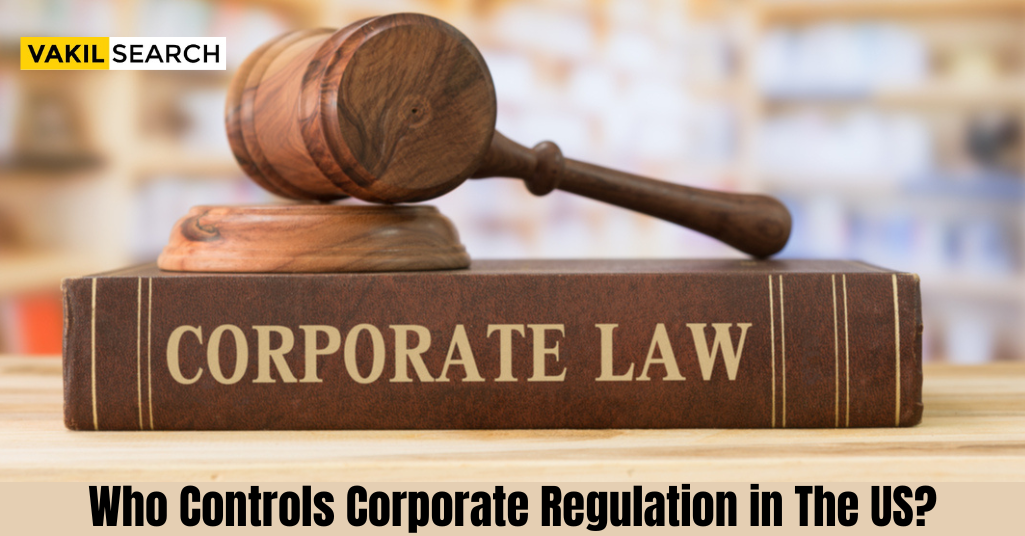Corporations are made up of shareholders who own them. Shareholders elect directors to oversee corporate operations and decide what to do with their company's profits. But who looks after all of this in the US? This article will go through who controls corporate regulations in the US.
Corporate Regulation in the US – A corporation is a legal entity formed under state law to conduct business. A corporation is treated by the law as if it were a person who can sue or be sued. A corporation is distinct from its individual owners, known as shareholders, who own the company’s stock.
Corporate law refers to all of the legalities that businesses may encounter. Corporations are subject to a slew of regulations that must be followed to reap the tax and other benefits of being a corporation. Most states require corporations to hold annual shareholder meetings, and many require the corporation’s board of directors and officers to meet more frequently. Most corporations have an attorney present at all of these meetings to ensure that they follow all state and federal regulations.
Corporations face all of the legal issues that other businesses face and these unique corporate law issues. Employment law issues, contract disputes, product liability, intellectual property management, and other issues are examples of these. Smaller businesses may be able to hire a single attorney with a broad range of experience to handle all of their legal matters. On the other hand, larger businesses may require a team of lawyers with various specialties to manage the day-to-day contract, employment, and business issues.
Definition of Corporate Law
The study of corporations and their interactions with society is referred to as corporate law. Securities regulation, bankruptcy, and mergers and acquisitions are just a few examples. Shareholders’ power versus managers’ and directors’ and stockholders’ rights are defined by corporate law. It also establishes corporate liabilities
What Is a Corporation?
A corporation is a company formed as a separate legal entity that can act independently of its shareholders. This means that the shareholders don’t have any liability related to acts taken by the corporation. The person who sets up a corporation is called the ‘shareholder’, and they are also responsible for paying income tax on any money that the corporation earns.
Importance of Corporate Law in the United States
US Corporate law is the set of principles that govern how corporations are administered. Corporations must obey all applicable laws, including building codes, environmental regulations, and labour laws. Violating these can result in fines, imprisonment, or both. The United States has some of the most challenging corporate laws globally because it’s focused on promoting competition and protecting investors.
Learn more about Essential Corporate Law in USA
Corporate Personhood
Corporate personhood refers to the legal concept that a corporation, distinct from its associated human beings such as owners, managers, or employees, has at least some of the legal rights and responsibilities that natural persons have. In 1886, the Supreme Court ruled in Santa Clara County v. Southern Pacific Railroad Company that a business could have both personal and property rights. This means that a corporation can buy or sell shares of its own stock and make decisions about its property ownership, just like an actual human.
Business Entities: Corporations, Partnerships, and Sole Proprietorships
Corporation:
A corporation is a business entity that is a separate legal entity from the shareholders. It has rights and liabilities that the owners do not share. The corporation can hire employees, purchase assets or property, enter into contracts and other arrangements, sue and be sued in its own name, and pay taxes without distributing anything to the shareholders. Incorporation creates an identity for the business.
Partnerships:
Some companies are partnerships. This can refer to a company that is governed by more than one partner or the relationship between two or more people working together for mutual benefit.
Sole Proprietorships:
Sole Proprietorships are the most common type of business entity in the United States. They only need one owner, who is not required to have any other employees or partners.
Forms of Shares/Stock
A corporation may have one or more classes of stock. A corporation can issue shares with different voting rights, dividend rights, and conversion rights. Different stock classes may help address issues related to changes in control, such as how shareholders will vote on a potential sale of the corporation.
Shareholders’ Rights and Obligations in General
Shareholders are entitled to a certain number of votes for each company’s share. They also
have certain obligations when it comes to the annual general meeting. Shareholders have to be given written notice of meetings and can’t vote by proxy. When the corporation is bankrupt, shareholders are not liable for more than their investment in the company unless they were aware that bankruptcy was likely inevitable.
The Duty of Care to Shareholders: Directors’ Liability for Unfaithful Performance
Directors of a company can be held personally liable for breaches of their fiduciary duty. Creditors and shareholders can sue directors for ‘unfaithful performance.’ This can happen when directors are found to have either acted illegally or neglected to perform the required duties. Violations of the fiduciary duty are usually regarding the director’s negligence, dishonesty, unlawful conduct, fraud, oppression, or breach of trust.
Directors’ Liability for Breach of fiduciary duty
Directors are not liable for breaches of fiduciary duty if the breach is minor or insignificant. If a director has acted with gross negligence or intentionally breached their duties, they may be held liable.
Conclusion:
In conclusion, this article has given an overview of corporate regulation in the US. Hopefully, it has been helpful to understand a little more about what happens when people incorporate or become directors of companies.
Read more,


